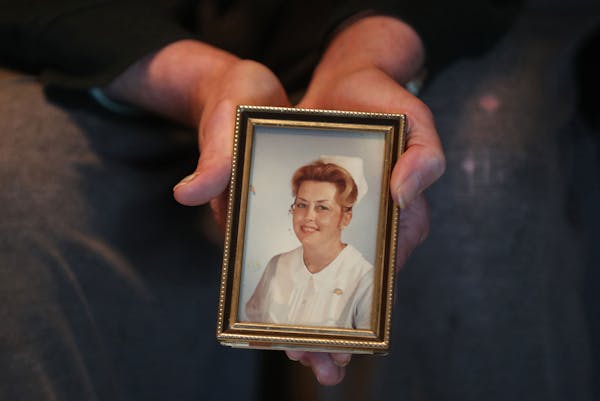Facing accusations that they failed to respond to a surge in elder abuse cases, leaders of Minnesota's senior care industry are now taking a tougher stand, embracing a number of reforms aimed at protecting vulnerable seniors.
At a Senate committee hearing Wednesday, the top executive for the state's largest trade group for the senior care industry said her members support tougher criminal sanctions against perpetrators of abuse, better communication with family members of abuse victims, and stronger protections for those who report maltreatment, among other changes.
"Senior living providers and the dedicated caregivers who serve Minnesota's growing population of aging citizens have zero tolerance for maltreatment of vulnerable adults," said Patti Cullen, president and chief executive of Care Providers of Minnesota, which represents nearly 900 senior care organizations across the state.
The comments are the clearest indication yet that members of the industry are willing to support some substantive changes in laws affecting senior care facilities.
A five-part Star Tribune series published in November chronicled multiple breakdowns in the state's handling of elder abuse cases. The series documented that hundreds of residents at senior care centers across Minnesota are beaten, sexually assaulted or robbed each year.
The vast majority of these incidents are never resolved, and the perpetrators have gone unpunished, in part because the state health agency lacks the resources to investigate them, the series revealed. Even when cases are investigated, they often drag on for months, undermining criminal prosecutions and frustrating families of abuse victims.
Gov. Mark Dayton responded to the series by convening a state working group led by families of elder abuse victims and senior advocates. In January, that group released a long and detailed list of recommended reforms. These include tougher penalties against facilities where serious abuse occurs; changes to state law to give abuse victims and their families access to reports of abuse; enhanced criminal prosecution of abusers; and increased oversight of the fast-growing assisted-living industry, which cares for about 60,000 Minnesotans but operates under lighter regulation than nursing homes.
Until now, representatives of the senior care industry have kept largely silent about these proposals, even as dozens of families of abuse victims have made multiple trips to the State Capitol to share searing stories of beatings, sexual assaults, verbal abuse and other incidents of maltreatment. On Wednesday, however, senior care industry representatives apologized to victims and stressed the need for urgent action.
"To all the families and seniors whose lives have been impacted in any way by abuse and maltreatment, please know that we share their hurt and their grief and that we are truly sorry for the heartbreaking experiences they have endured," said Gayle Kvenvold, president and CEO of LeadingAge Minnesota, a nursing home trade group.
While lacking specific proposals, industry leaders said Wednesday that they were ready to consider a wide array of reforms, including several already floated by senior advocacy groups.
These include enhanced criminal charges for perpetrators of abuse and neglect; new laws clarifying the use of electronic surveillance in senior facilities; and more transparent rules about when staff and facilities should report maltreatment. They also called for the creation of a special work group to review the state's model for regulating assisted-living facilities, which are currently not licensed.
Even so, several lawmakers said that before crafting legislation they will wait for the release early next week of a highly anticipated report by Minnesota's legislative auditor about abuse in senior care facilities.
The auditor's office has spent nearly a year evaluating the state's Office of Health Facility Complaints (OHFC), a division of the Minnesota Department of Health, following reports that the agency was failing to investigate abuse allegations in a timely and effective manner. That report is expected to lay out a series of measures to improve the state's investigative process.
Sen. Jim Abeler, R-Anoka, chairman of the Senate Human Services Reform Finance and Policy Committee, said senior care industry leaders are "saying all the right things," but their commitment to change will not be fully known until legislation is introduced.
"It's a very positive sign that they want to be in the room," Abeler said. "They sense this is the year that reform is going to happen and they can't afford to stick their heads in the sand."
Chris Serres • 612-673-4308 Twitter: @chrisserres

'Safe recovery sites' would offer syringes, naloxone and more to people using drugs. The plan could be in peril.
New Minnesota GOP leaders seek peace with party's anti-establishment wing

Who is Republican Lisa Demuth, Minnesota's first House speaker of color?

